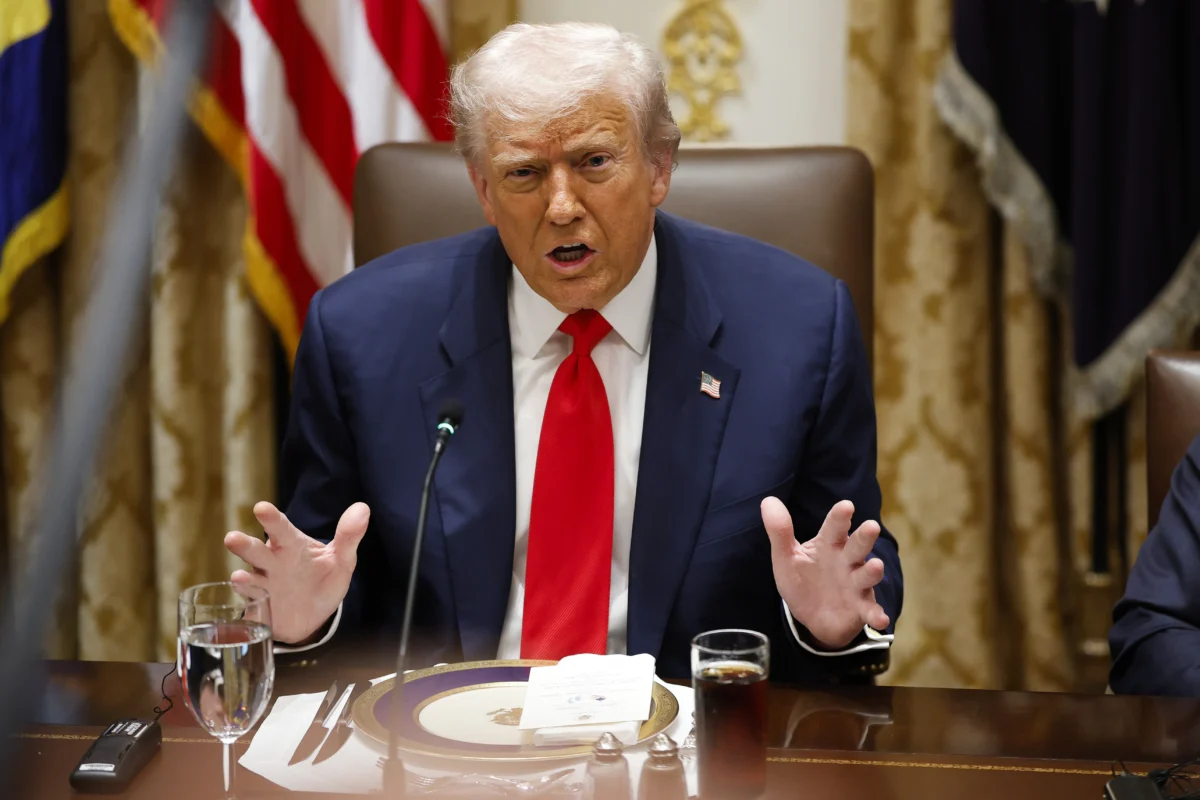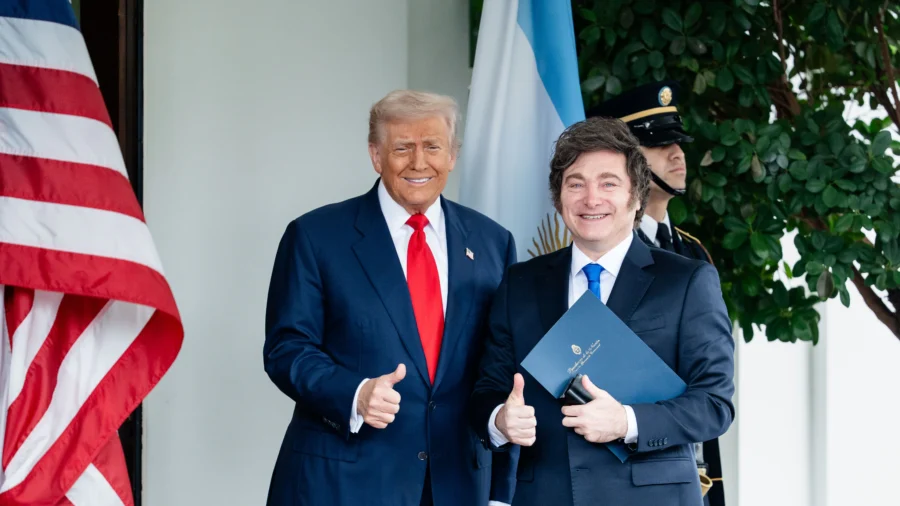President Donald Trump says U.S. financial assistance for Argentina depends on the South American nation’s election outcome this month.
Trump endorsed Argentinian President Javier Milei on Oct. 14, backing the anti-establishment libertarian leader amid Argentina’s deepening financial troubles.
The two met at the White House as Milei seeks international support for his sweeping economic reforms. Their meeting comes just weeks before Argentina’s pivotal midterm elections, which could determine the fate of Milei’s reform agenda.
“I’m with this man because his philosophy is correct, and he may win, he may not win. But I think he’s going to win, and if he wins, we’re staying with him, and if he doesn’t win, we’re gone,” Trump said.
“Because if a socialist wins, you’d feel a lot differently about making an investment.”
Expressing support for his administration’s financial aid, Trump stated that he is “just helping a great philosophy take over a great country.”
Over the past two years, Milei has secured several victories at home, including bringing down inflation from astronomical heights and posting the first budget surplus in 14 years.
U.S. Treasury Secretary Scott Bessent called the financial lifeline a “bridge” to ensure that Milei can maintain “strong policies so that Argentina can be great again.”
Since Milei and his La Libertad Avanza experienced electoral defeat in last month’s provincial elections, the Latin American country has been facing a deepening cash crunch, requiring government intervention to halt the hemorrhaging.
Milei will face his first midterm elections on Oct. 26, when 127 seats in the Chamber of Deputies and 24 seats in the Senate are contested.
Recent movements in predictive markets suggest that the president and his party are gaining momentum. Conversely, the left-leaning Peronist-Kirchnerist coalition has seen its support erode this month.
“Going back to Peronist policies would cause a rethink,” Bessent said.
Peronism has been rooted in the socialist ideology of Juan Peron—the 29th president of Argentina—shaped by the combination of income redistribution, welfare, and nationalism.
Still, Trump expressed confidence that Milei will perform well in the electoral contest.
“You’re going to win the election, we’re going to endorse you, I’m going to endorse you today, fully endorse you,” Trump said, adding that “our approvals are somewhat subject to who wins the election.”
‘China Likes to Draw Wedges’
Their meeting at the Oval Office comes at a time when China, the world’s largest soybean buyer, has not purchased the agricultural commodity from American farmers.
According to data from the Department of Agriculture, China has not bought soybeans from the United States this year. Instead, Beijing has redirected many of its purchases to Argentina, which has resulted in American farmers struggling to sell their crops.

President Donald Trump speaks during a meeting with President of Argentina Javier Milei in the Cabinet Room at the White House on Oct. 14, 2025. Kevin Dietsch/Getty Images
When asked whether the Chinese regime is doing this to cause friction between the United States and Argentina, Trump said this is likely China’s strategy.
“China likes to draw wedges,” Trump told reporters during a bilateral lunch between the two leaders. “I guess that’s natural. It’s China, and it’s natural. But it’s not going to mean anything in the end.”
But while U.S. support has been paramount to prevent further deepening of Argentina’s cash crunch, the White House has also vowed to help farmers.
“The Soybean Farmers of our Country are being hurt because China is, for ‘negotiating’ reasons only, not buying,” Trump said in a Truth Social post earlier this month. “It’s all going to work out very well.”
Trump noted that he will make soybeans a top subject in his upcoming meeting with Chinese leader Xi Jinping. The president has also committed to using tariff revenue—above $200 billion this fiscal year—to help U.S. farmers, although details have not been provided.
Over the past decade, the Chinese regime has extended its influence over Argentina and Latin America.
Former Argentinian President Alberto Fernández bolstered economic and diplomatic relations with China, allowing significant Chinese investment and strategic cooperation in various sectors. As part of Beijing’s Belt and Road Initiative—a global infrastructure initiative to reshape trade and economics—Chinese firms, using state-backed finances, have invested in lithium mining, nuclear energy, and hydroelectric dams.
Despite the administration’s aims of reducing Argentina’s dependence on the world’s second-largest economy, Bessent clarified to the press that the $20 billion package is not predicated on Buenos Aires ending its currency swap arrangement with China.
Bessent suggested, however, that U.S. assistance might be limited if Argentina does not curb Chinese presence at ports, military bases, and observation facilities that have been created in recent years.


